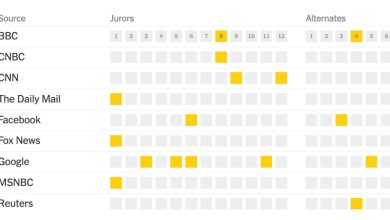Europe’s economy slows to a crawl as war and inflation take a toll.

The eurozone economy grew by 0.2 percent during the first three months of the year, Eurostat, Europe’s statistics agency, reported on Friday, as rising prices, flagging consumer confidence related to the war in Ukraine and continuing supply chain disruptions exerted a drag on the region’s recovery from the pandemic.
“Clearly the picture for the first quarter is one of pretty weak growth,” said Ángel Talavera, head of European economics at Oxford Economics. “Consumer confidence has tanked everywhere pretty sharply,” he noted, adding that household spending was weak as wages failed to keep pace with inflation, particularly in food and energy.
The figures for gross domestic product, the broadest measure of economic output, varied widely among the 19 countries that use the euro. In France, where Covid restrictions remained in place for much of the first quarter, growth stagnated.
The Spanish economy performed a bit better, growing by 0.3 percent in the first quarter of 2022 compared to the previous three months. The improvement was much smaller than the 2.2 percent recorded in the last quarter of 2021, however.
Germany, with the largest economy in Europe, saw a 0.2 percent increase in G.D.P. for January, February and March, bringing its year-over-year growth to 4 percent.
“The economic consequences of the war in Ukraine have had a growing impact on the short-term economic development since late February,” the Federal Statistics Office of Germany said in a statement.
In Italy, by contrast, real G.D.P. fell by 0.2 percent from the previous quarter.
Growth in the 27 countries that make up the European Union was a bit brighter in January, February and March, rising by 0.4 percent compared to the previous three months.




